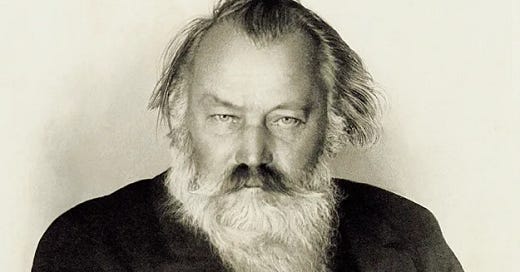Lascia che questo serio amore sia per te anche qualcosa di consolante. Io ti amo più di me stesso, più di chiunque altro e di qualunque cosa al mondo.
Mi rattrista sempre pensare che, dopotutto, non sono ancora un vero musicista; ma ho più attitudine per questa vocazione di quanto probabilmente abbiano molti della generazione più giovane, di solito. Ti v…
Keep reading with a 7-day free trial
Subscribe to (((RADIO PIAN PIANO))) to keep reading this post and get 7 days of free access to the full post archives.



